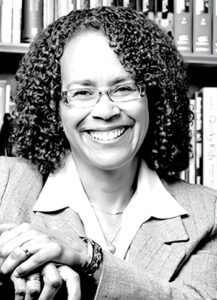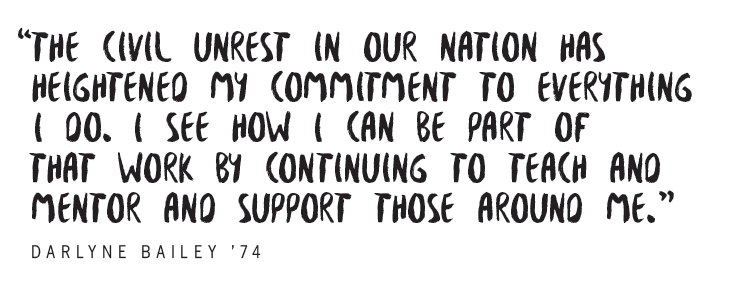Read our full interview below
Please describe your current and/or previous roles that relate to your work for justice and equality.
The Social Justice Initiative has been a total blessing. Our mission is to convene community-based services, participatory research, and education. Our mission isn’t to become experts in any particular area, but to connect and convene and connect kindred spirits.We use four pathways to advance those who want to create a more just world for themselves and their communities. If you follow these, it’s how you’ll get closer to actualizing actual social justice.
- Courage and compassion: I put them together because they actually balance each other. It’s more than just having courage and having verve to do something. It’s much more than that. It’s’ about having compassion. For example, if you are an organizational leader, you’ve got to make budget cuts. If you make just with courage, you slash and cut. If you do it through compassion, you won’t be able to cut. If you put them together, you’ll have something that will work for you.
- Forgiveness: Forgiveness is accepting what’s happened in the past and moving through it not staging stuck and identifying yourself as a victim. It’s important for people—if you are stuck as a victim, you are going to get stuck and won’t forgive yourself. Desmond Tutu talks about forgiveness doesn’t mean you forget. To really forgive you ought not forget. You need to remember what you went through and how you arrived at forgiveness.
- Cultural humility: It’s knowing that we don’t know enough. It’s about staying grounded in knowing that we don’t know. And being grounded in that. To be humble and humanist, being grounded in who you are and knowing that there is a lot you don’t know.
- Radical love: Martin Luther King Jr.,, Gandhi, Nelson Mandela called it “agape,” which means loving someone simply because they are. That’s radical love. Recognizing the good in others simply because they exist.
These are the four pathways to social justice that I wrote in 2016 and launched in 2017. It’s gotten a lot of traction.
What about your work brings you the most joy or gives you the most pride?
Connecting people with people. My goal in life is to help people all live their dreams. I don’t have a middle name, but if I did, it would be “connections.” When the right people come together at the right time, sheer magic can happen. That brings me the most joy.
What is your most meaningful moment or significant accomplishment?
What has brought me the most pride in life was making my mom and dad proud. That was an incredible gift. They did the best they could do to make me the best I could be. I’ve always been the first to accomplish things—the first woman, the first African-American woman, the first woman of color to receive tenure, the first social worker, a first-gen graduate. It was all possible because my parents said “you can do whatever you want to.”
What is the greatest hurdle you’ve had to overcome?
The greatest thing that makes me afraid in life is being around people who are not woke. It’s like they are sleepwalking through life. They can talk and walk and maybe even say a few of the right things. But they are sleeping through life. They might bump into you and cause you some harm, but they don’t wake up. They just keep moving, and that frightens me more than anything else. Not enough people are really paying attention. I think being able to recognize those people is a hurdle. You might ask hasn’t your hurdle been about being a woman? Or being an African American? Yes, those were hurdles, but those were bumps. That is not the same as bumping into people who are not woke. I’ve worked to learn how to recognize those folks. Realizing who is not woke can be painful, when people aren’t authentically awake and able to tell the truth. If you aren’t woke, you can’t engage in meaningful, sustainable relationships that are mutually beneficial for the long run.
How do you empower those around you?
Connecting people. At Lafayette, I hated the word empowerment—I thought it represented the idea of was white men who gave Black people the right to do things. That’s how I heard it. Now I’ve examined it and reclaimed it. It’s not making them into something that they aren’t—it’s about making sure they have the resources to be the best that they can be. Everything I’ve done is about empowering and connecting, and making certain people around me have the resources to live to their highest potential. To do that, you need to do more listening than talking. It’s a learned skill I’ve had to develop.
Students sometimes say “how can I be like you?” I say you already are. You are doing the best you can do. We are all simply more human than otherwise. They are already like me just by being human.
What short phrase would you offer others to inspire them to have hope and/or to take action?
“It’s all good”—that doesn’t mean it’s all good in this very moment. But it’s the bottom line. I see the goodness of God in everybody. It takes a little longer to see the goodness some versus others. If you really want to connect with someone, you connect with that good piece. That’s what I do. I believe life is a gift. It’s about living fully and loving fully—to live as fully as you can, to laugh as often as you can, to enjoy as many precious moments as you can, to love as many as fully possible. It’s what I believe; it’s how I show up.
How has this summer’s civil unrest and calls for equity impacted you?
First and foremost, everything going on has heightened my commitment to everything I do. It’s further woken me up to the fact that there’s so much to be done. And I can see how I can be part of that work by continuing to teach and do the work. I just love mentoring folks. There is a McDonogh Network scholarship in my name, and so Lafayette students call me for guidance. Students from 1988 that stay in touch with me. I’ve learned what a mentor is all about. Most important, it’s not being the sage on the stage, it’s about being the guide on the side. That to me is what this summer’s unrest has reminded me of—I may not be out on the frontlines. But I’m still doing what I can to bring a sense of humanity back. Our sense of what it means to be an engaged citizen is at risk, our sense of humanity is at risk. The impact on me has been profound. This past summer, I felt sad and even on the verge of helplessness, but now I’m stepping out again and doing the work. How could I not?
How has your perspective changed since the time you were a Lafayette student?
I grew up feeling like I was on the margins. I’ve grown to realize that it’s a pretty powerful place to be—I can create bridges and connect people. I now see that it’s a powerful place to be. Everyone has a voice. It’s our job to listen to it, to restore its power, to amplify the voices of those who need our support.

